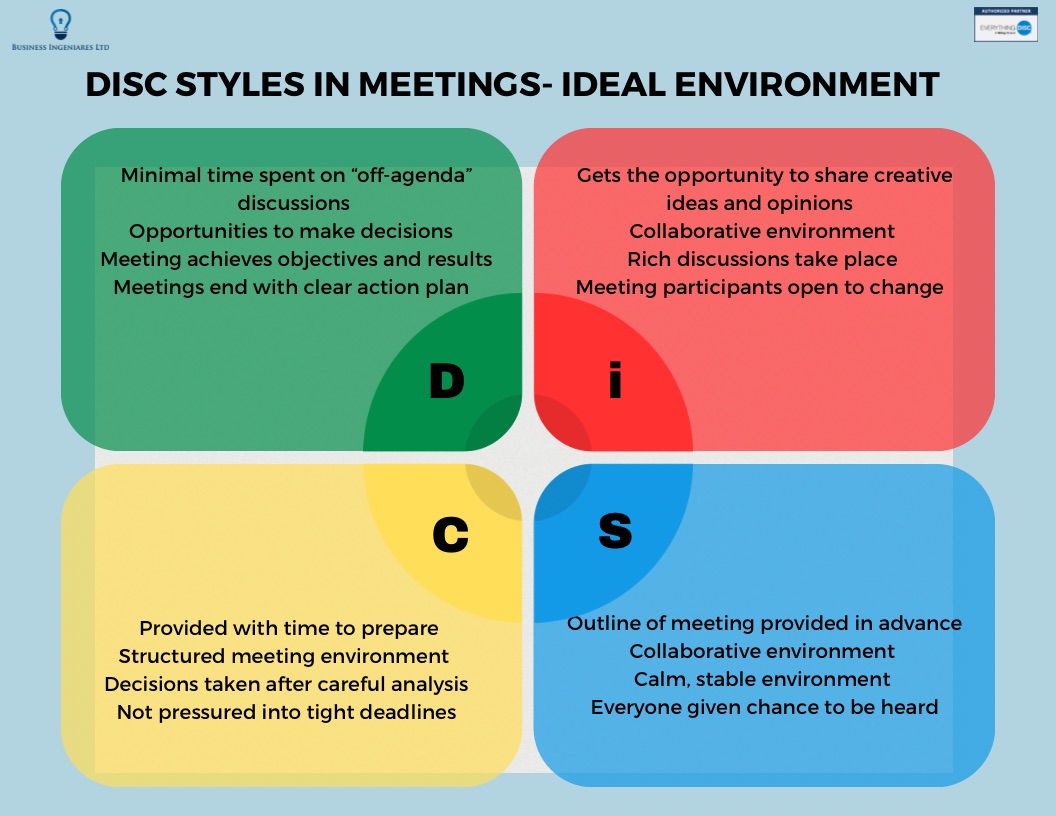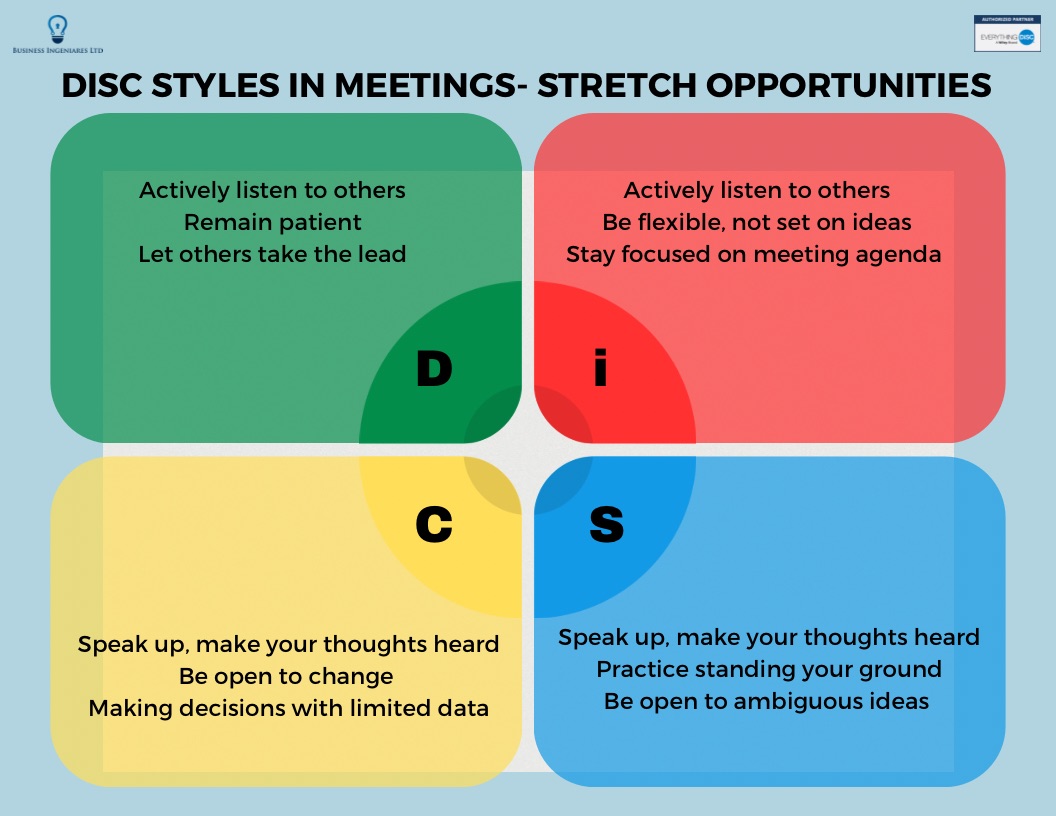
DiSC Styles in Meetings
If you have completed an Everything DiSC® Workplace assessment on Catalyst or DiSCOVER Yourself workshop, you have a powerful tool at your fingertips to use in the workplace. With Catalyst, you can not only continue learning about your DiSC style, but also continue learning about your colleagues’ styles. Looking at the DiSC Workplace map, you have a guide to the main drivers for each style, and some insight into some of the motivators and stressors of each style.
The CatalystTM Platform
- Delivers the Everything DiSC profile in a guided, narrative-style format.
- Allows you to go deeper into your DiSC® style to develop social and emotional skills.
- Allows you to compare your DiSC style with your colleagues and get real-time tips for more effective interactions.
- Allows you to create and save groups to shed light on team dynamics that impact performance.
- Provides access to a range of social and emotional skills development content—personalized to your unique DiSC style.

Using knowledge of DiSC you can make small adjustments to the environment that will make a big impact for the different DiSC styles on your team, and improve team effectiveness and productivity. For example, if you’re a planner, or a participant in a meeting with other colleagues, look up their styles beforehand, and keep in mind the priorities that influence how they may behave. With Catalyst, you will even receive tips in tune with their actual, unique DiSC profile.
Ideal Meeting Environment for DiSC Style Preferences

D Styles- D, Di, DC
If you’re in a meeting with D Style colleagues, remember that they prioritise action, challenge and results. They want to be able to feel that the meeting was productive and that it met the objectives.
i Styles- i, iS, iD
If you’re in a meeting with i style colleagues, remember, they value collaboration, action and enthusiasm. They want to be in a space where people are sharing ideas back and forth and lots of discussion is taking place.
S Styles- S, Si, SC
S- Style colleagues in meetings are more likely sit back and listen before they contribute… and they don’t like confrontations, or conflict. They prioritise stability, being supportive and collaboration and will model behaviours to maintain this type of environment.
C Styles- C, CD, CS
C-Style colleagues priortise challenge, accuracy and stability. They will love structure as it allows them to be able to work in an analytical and logical manner and make informed decisions. They may push back against ideas they perceive to be risky, or where they are unable to predict an accurate future state or outcome.
Stretching Outside Your Comfort Zone
Remember that self-awareness is not only meant to give you self-confidence. It is also meant to reveal blind-spots in terms of how you perceive yourself. Your profile shows you areas that you may want to develop. As you become more self-aware, you should be able to improve your workplace effectiveness, the quality of workplace relationships and your ability to manage stress.
We are all a blend of all four DiSC styles, even though we may show a preference for one style over others. Your work style is also influenced by other factors such as life experiences, education, and maturity. In an environment with other persons, we need to learn to adapt. Our drivers can work as our strength and can also work against us if we don’t leave our comfort zones, and venture into areas that require is to expend more energy.
Continuing to focus on DiSC Styles in meetings, here are ways that you can “stretch” so that you can make more productive contributions. You an read more about the benefits of leaving your comfort zone here “How to leave your comfort zone and enter your growth zone”.

Don’t let your DiSC profile sit on a shelf gathering dust. If you have not been on Catalyst since you took your assessment, or since attending the workshop, remember that you have unlimited and long-term access to this platform, which you can use to increase self-awareness, identify your blind spots, and gain valuable information to improve how you can relate better with your colleagues.
Here is a reference page for Catalyst if you have not been on in a while: Guide to Catalyst
Don’t wait, ongoing personal and team growth and development is in your hands. Learn more about Everything DiSC or go ahead and log into Catalyst to continue exploring your profile.


Article by Audra Stevenson Drakes
Published 07 Sep 2023